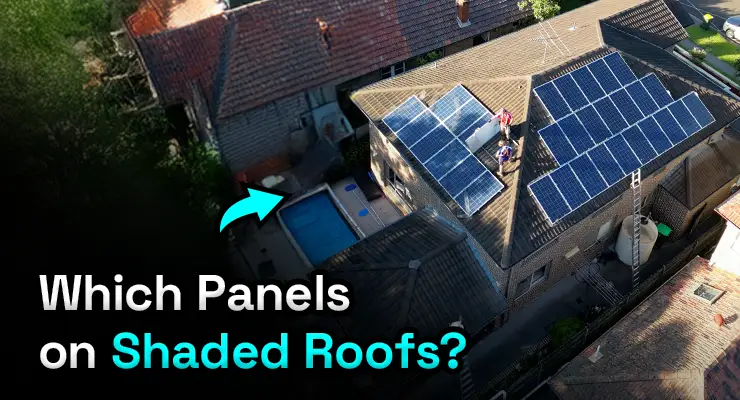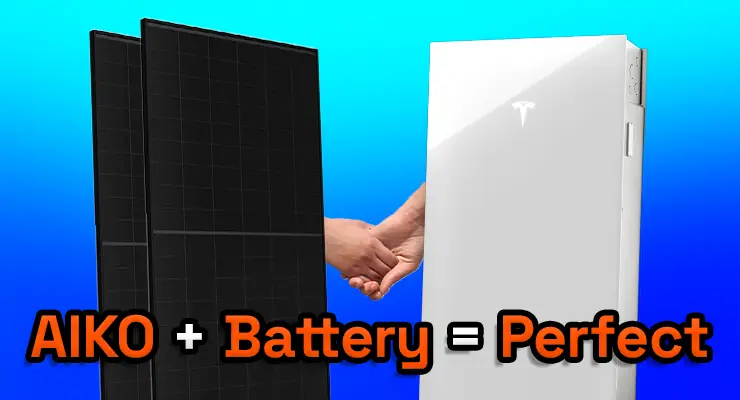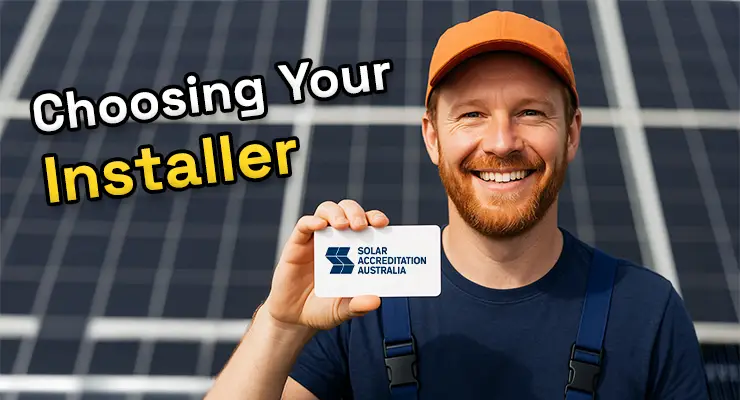Fast read
Yes, there is solar panel insurance! It protects your investment from risks like weather damage, theft, and vandalism. While homeowners insurance might cover solar panels attached to your home, standalone solar panel insurance offers broader protection.
Key factors to consider include coverage limits, deductibles, exclusions, and premiums. To get started, assess your needs, review existing policies, compare quotes, and read the fine print. Get insurance for your solar panels to protect your investment and have peace of mind in case of unexpected events.
Is There Solar Panel Insurance? Everything You Need to Know
More and more people are using solar panels to save money and help the environment as solar energy becomes more popular. However, with this significant investment comes the question of protection: Is there solar panel insurance? Understanding solar insurance can help you safeguard your investment and ensure long-term peace of mind.
What is Solar Panel Insurance?
Solar panel insurance is a specialised type of coverage designed to protect your solar energy system from a variety of risks. These risks can include damage from weather events, theft, vandalism, and even performance issues. Given the considerable cost of installing solar panels, having insurance can be a prudent way to protect your investment.
Do You Need Solar Panel Insurance?
While solar panels are generally durable and built to withstand various environmental conditions, they are not invincible. Severe weather, natural disasters, and accidents can affect how well your solar power system works and how long it lasts. Solar panel insurance can help pay for repairs or replacements of damaged panels, saving you money in the long term.
Types of Insurance Coverage for Solar Panels
Homeowners Insurance
In many cases, standard homeowners insurance policies provide some level of coverage for solar panels. This coverage typically extends to solar panels that are permanently attached to your home, treating them as part of the building’s structure. Checking your policy is important to know what it covers and any restrictions that might be in place.
Standalone Solar Panel Insurance
For those seeking more comprehensive protection, standalone insurance is an option. This insurance is made for solar energy systems and may provide more coverage than regular homeowners’ policies. Standalone solar panel insurance can cover a range of scenarios, including:
- Weather-related Damage: Protection against damage caused by hail, wind, lightning, and other weather events.
- Theft and Vandalism: Coverage for panels stolen or vandalised.
- Accidental Damage: Insurance for accidental damages, such as a fallen tree branch.
- Performance Issues: Some policies may cover performance-related issues, ensuring your system continues to generate electricity as expected.
Manufacturer Warranties
While not a form of insurance, it’s worth noting that many solar panel manufacturers offer warranties that cover defects and performance issues. These warranties typically last for 20-25 years and can provide an additional layer of protection. However, warranties do not cover external damages from weather or accidents, making insurance a valuable supplement.

Factors to Consider When Choosing Insurance
When selecting solar panel insurance, consider the following factors to ensure you get the best coverage for your needs:
Coverage Limits
Make sure the policy you pick covers enough to replace or fix your solar panels if they are seriously damaged. Assess the total value of your solar system and select coverage that matches or exceeds this amount.
Deductibles
A deductible is the amount you must pay out-of-pocket before your insurance coverage kicks in. Compare policies to find a deductible that feels right for you, balancing cost with how much risk you’re okay with.
Exclusions
Review the policy exclusions to understand what is not covered. Some policies may exclude certain types of damage or have limitations on coverage for specific events. Make sure the policy you choose aligns with the risks most relevant to your location and situation.
Premiums
The cost of insuring solar panels can vary based on three factors. These factors include your location, the value of your solar system, and the level of coverage you desire. Your insurance premium may fluctuate depending on these variables. Obtain quotes from multiple insurers to compare rates and find a policy that offers good value for your investment.
How to Get Solar Panel Insurance
Here are the steps to follow:
1. Assess Your Needs
Determine the value of your solar panel system and assess the risks you want to cover. Consider factors such as your geographic location, weather patterns, and potential for theft or vandalism.
2. Review Existing Policies
Check your current homeowner’s insurance policy to see if it includes coverage for solar panels. If your existing policy provides adequate coverage, you may not need additional insurance. However, if the coverage is insufficient, proceed to explore standalone options.
3. Compare Quotes
Contact insurance providers to request quotes for standalone solar panel insurance. Compare the coverage limits, deductibles, exclusions, and premiums of each policy to find the best option for your needs.
4. Read the Fine Print
Before purchasing a policy, carefully read the terms and conditions. Make sure you know what is covered, what is not covered, and what you must do to keep the policy.
5. Purchase the Policy
Once you have selected a policy, complete the necessary paperwork and purchase the insurance. Keep a copy of the policy documents for your records and make sure you know how to file a claim if needed.
Conclusion
In conclusion, the question “Is there solar insurance?” is answered with a clear yes. Insurance for solar energy systems is available and offers valuable protection for your investment.
Getting insurance for your solar panels means you protect your investment and give yourself peace of mind. You can add this protection through your homeowner’s insurance or get a separate policy just for your solar panels. Comparing different insurance options is a good idea to find the best coverage for your needs.
When you compare insurance options, look at what each one covers and how much it costs. Some insurance plans might cover damage from storms, while others might cover theft or other types of damage. By finding the right insurance, you can make sure your solar panels are protected against various risks.
Having the right insurance means your solar energy system is covered in case of unexpected events. This long-term protection can save you money and stress in the future. So, take the time to look at different insurance options and choose the one that best fits your needs. This way, you can enjoy the benefits of solar energy without worrying about potential damages or losses.



